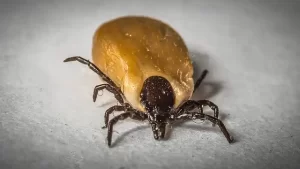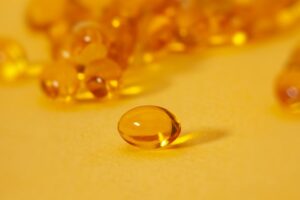Cell: The cause of death by staying up late has been found!
- Engineered Soybeans with Pig Protein: A Promising Alternative or Pandora’s Dish?
- Severe Fever with Thrombocytopenia Syndrome (SFTS): A Tick-Borne Threat with High Mortality
- Why Isolating Bananas Extends Their Shelf Life?
- This common vitamin benefits the brain and prevents cognitive decline
- New report reveals Nestlé adding sugar to infant formula sold in poor countries
- Did Cloud Seeding Unleash a Deluge in Dubai?
Cell: The cause of death by staying up late has been found!
- Red Yeast Rice Scare Grips Japan: Over 114 Hospitalized and 5 Deaths
- Long COVID Brain Fog: Blood-Brain Barrier Damage and Persistent Inflammation
- FDA has mandated a top-level black box warning for all marketed CAR-T therapies
- Can people with high blood pressure eat peanuts?
- What is the difference between dopamine and dobutamine?
- How long can the patient live after heart stent surgery?
Cell: The cause of death by staying up late has been found! The problem is not with the brain or the heart, or with it!
Resting in bed, even when your mind is awake, can restore your energy. Sleeping or not being able to sleep is a victory. And, reducing the stress of falling asleep can actually help you fall asleep faster.
Many of us are chronically sleep deprived, and we do it even though we know staying up late every night is not good for our health…Understanding the biology of how sleep loss damages our health so we can prevent Lack of sleep damages the body’s health.
In a study titled “Sleep Loss Can Cause Death through Accumulation of Reactive Oxygen Species in the Gut” published in the international journal Cell , researchers from Harvard Medical School found that sleep deprivation may be caused by the intestinal Accumulation of reactive oxygen species in the tract leads to death.

Image credit: Alexandra Vaccaro, et al. Cell , 2020; doi:10.1016/j.cell.2020.04.049
ROS is a factor that induces death
In the article, the researchers used fruit flies and mice to study and found that sleep deprivation/loss can lead to the accumulation of reactive oxygen species (ROS , reactive oxygen species) and oxidative stress effects, especially in the gut ;
ROS is not only Associated with sleep loss and a driver of inducing death , neutralizing reactive oxygen species effectively prevents oxidative stress and allows normal lifespan in flies with little or no sleep. Or transgenic expression of antioxidant enzymes targeting the gut may rescue the damage caused by ROS.
The researchers believe that the death caused by severe sleep deprivation may be caused by oxidative stress, and the gut is at the center of this process.
When the accumulation of ROS in the body is blocked, without sleep, Organism survival may be possible.
In this study, the researchers revealed the cause of death in experimental sleep deprivation.
They said that ROS scavenging may be a daily sleep function, but it is also possible that sleep loss produces a unique Unfavorable conditions lead to the accumulation of ROS.
The production of ROS may be due to increased production, decreased clearance, or both, and the long-term arousal state of the body may directly affect the gut, but the accumulation of ROS may also be derived from The result of signals from the nervous system or other tissues.
Most research focuses on the brain
Lack of sleep can directly induce the production of endoplasmic reticulum pressure in the gut, which can trigger oxidative stress in tissues .
Previously, researchers have found through animal models that long-term lack of sleep can lead to premature death.
In order to try to find sleep How deletion induces death, most of the relevant research has focused on the brain, because the brain is the source of sleep, but researchers have not reached some conclusive results.
The researchers found that fruit flies can fall asleep by physically shaking them, so they genetically engineered the flies to express a heat-sensitive protein in specific neurons in their brains, the activity of which inhibits sleep, When the flies were exposed to 29 degrees Celsius (84 degrees Fahrenheit), the protein induced neurons to remain active, blocking sleep in the flies.
After 10 days of temperature-induced sleep deprivation, the mortality rate of fruit flies surged until all flies died at 20 days.
Under the same environmental conditions, normal sleeping control flies were able to survive for about 40 days.
Since the mortality rate of fruit flies increases around the 10th day, the researchers wanted to look for markers that induce cell damage in their bodies.
They found that there was a significant accumulation of ROS in the gut of the sleep-deprived fruit flies.
A highly reactive oxygen-containing molecule that in most cases disrupts the function of DNA and other components in cells, thereby inducing cell death, the researchers say, the accumulation of ROS reaches about 10 days of sleep deprivation in Drosophila At a peak, when insomnia was ameliorated, levels of ROS in the flies’ gut decreased.
Other experiments showed that ROS were only accumulated in the gut of animals that experienced persistent sleep loss, and that the gut is a major source of this lethal ROS .

Image credit: Alexandra Vaccaro, et al. Cell , 2020; doi:10.1016/j.cell.2020.04.049
The sleep-deprived flies died at the same rate every time, and when we looked at markers of cellular damage and death, the most striking tissue was the gut, said researcher Vaccaro.
In addition, the researchers also used mild, sustained The mechanical stimulation kept mice awake for up to 5 days to analyze whether ROS accumulation also occurs in other species.
Compared with control animals, sleep-deprived mice had elevated levels of ROS in the small and large intestine tissues , but not in other organs, a finding consistent with observations in fruit flies.
To elucidate whether ROS in the gut might play a causal role in sleep deprivation-induced death, the researchers analyzed whether inhibiting ROS accumulation would prolong the animals’ survival.
They tested a variety of compounds with antioxidant properties that can effectively neutralize ROS, and finally identified 11 compounds that, when given to flies as a food supplement, gave sleep-deprived flies a normal or near-normal lifespan;
These compounds include melatonin, lipoic acid, and NAD (nicotinamide adenine dinucleotide), which are effective at scavenging ROS from the gut.
Notably, the supplement does not appear to prolong sleep and does not deprive the flies. lifespan.
The researchers believe that the accumulation of ROS in the gut may play a central role in inducing premature death in sleep-deficient fruit flies. At present, researchers still do not know why sleep deprivation induces the accumulation of ROS in the body’s gut, and why this is so. can have lethal effects; likewise, death may be due to intestinal damage or systemic effects of high levels of ROS.
During periods of sleep deprivation, the level of ROS in the body’s gut begins to rise. This may be a protective response. Under natural conditions, animals may fall asleep before ROS reaches dangerously high levels.
This possibility may be Indeed, lack of sleep interferes with the body’s hunger signaling pathway, so the researchers also measured the flies’ food intake to see if there was a specific link between eating and risk of death.
They found that some sleep-deprived flies ate more throughout the day than control flies that were not sleep-deprived, however, restricting food intake did not appear to have an effect on the flies’ survival, which may suggest that , factors other than food intake may also be involved.
Research is currently underway to identify specific biochemical pathways that induce ROS accumulation and subsequent physiological disturbance in the body’s gut.
The results of this study could also help researchers develop novel therapies that can neutralize the negative health outcomes of sleep loss.
References:
1. Alexandra Vaccaro, Yosef Kaplan Dor, Keishi Nambara, et al. Sleep Loss Can Cause Death through Accumulation of Reactive Oxygen Species in the Gut. Cell , 2020; doi: 10.1016/j.cell.2020.04.049
https://www.sciencedirect.com/science/article/pii/S0092867420305559
2. Sleep, death and … the gut?
https://www.sciencedaily.com/releases/2020/06/200604152053.htm
Cell: The cause of death by staying up late has been found!
(source:internet, reference only)
Disclaimer of medicaltrend.org
Important Note: The information provided is for informational purposes only and should not be considered as medical advice.



